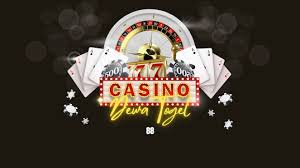Slot machines, often referred to as “one-armed bandits,” have become synonymous with gambling entertainment across casinos worldwide. These colorful, flashing devices attract players with the promise of exciting gameplay and the chance to win daftar duatoto. But beyond their surface allure, slot machines have a rich history and intricate mechanics that make them a staple in the gambling industry.
A Brief History of Slot Machines
The first slot machine was invented in 1887 by Charles Fey, a San Francisco mechanic. Named the “Liberty Bell,” it featured three spinning reels and five symbols: diamonds, hearts, spades, and a bell. When players lined up three bell symbols, they won the maximum payout of 50 cents—a significant sum at the time. The simplicity and appeal of the Liberty Bell led to a surge in popularity, setting the stage for the evolution of slot machines.
By the 1900s, slot machines had gained traction in bars and saloons. To circumvent gambling laws, some establishments offered these machines as a form of amusement rather than gambling. This led to the introduction of mechanical devices that dispensed candy or chewing gum instead of cash prizes. The phrase “penny slot” also emerged during this period, as many machines accepted a penny for a spin, making them accessible to a broader audience.
The Mechanics Behind Slot Machines
Modern slot machines have evolved significantly from their mechanical predecessors. Today, they utilize advanced technology and computer systems. Here are some key components:
- Random Number Generators (RNGs): At the core of every slot machine is an RNG, which ensures that each spin is random and independent of previous spins. This technology guarantees fairness and unpredictability, which are crucial for maintaining player trust.
- Reels and Paylines: While traditional machines featured three reels, modern slots often have five or more. Players can win by lining up symbols on various paylines, which can be straight, diagonal, or zigzag patterns. Some games even offer “ways to win,” where players can win with matching symbols on adjacent reels, regardless of their position on the paylines.
- Bonus Features: Many modern slots include bonus rounds, free spins, and progressive jackpots, enhancing gameplay and increasing the potential for larger payouts. These features keep players engaged and returning for more.
The Impact of Slots on Gambling Culture
Slot machines have become a cultural phenomenon, influencing not only gambling but also entertainment and social interactions. Here are a few ways they have impacted society:
- Accessibility: Slots are often the most accessible form of gambling, attracting a diverse range of players, including those who may not be interested in table games like poker or blackjack. Their simplicity and low minimum bets make them appealing to casual gamblers.
- Entertainment Value: The combination of lights, sounds, and interactive gameplay creates an immersive experience that can be highly entertaining. Many casinos invest in elaborate themes and designs to draw players in, creating a unique environment.
- Economic Impact: Slot machines generate a significant portion of revenue for casinos. They are often the backbone of the gaming industry, contributing to job creation, tourism, and local economies.
- Responsible Gambling: As the popularity of slot machines has risen, so has the need for responsible gambling measures. Many jurisdictions require casinos to implement programs that promote responsible gaming and provide resources for those who may be struggling with gambling addiction.
Conclusion
Slot machines are more than just simple gaming devices; they represent a fascinating intersection of technology, entertainment, and culture. From their humble beginnings to their modern-day sophistication, slots have captivated players around the globe. As technology continues to advance, we can only imagine what the future holds for these iconic machines. Whether you’re a seasoned gambler or a curious novice, the world of slot machines offers a thrilling experience that combines chance, strategy, and a dash of luck.



